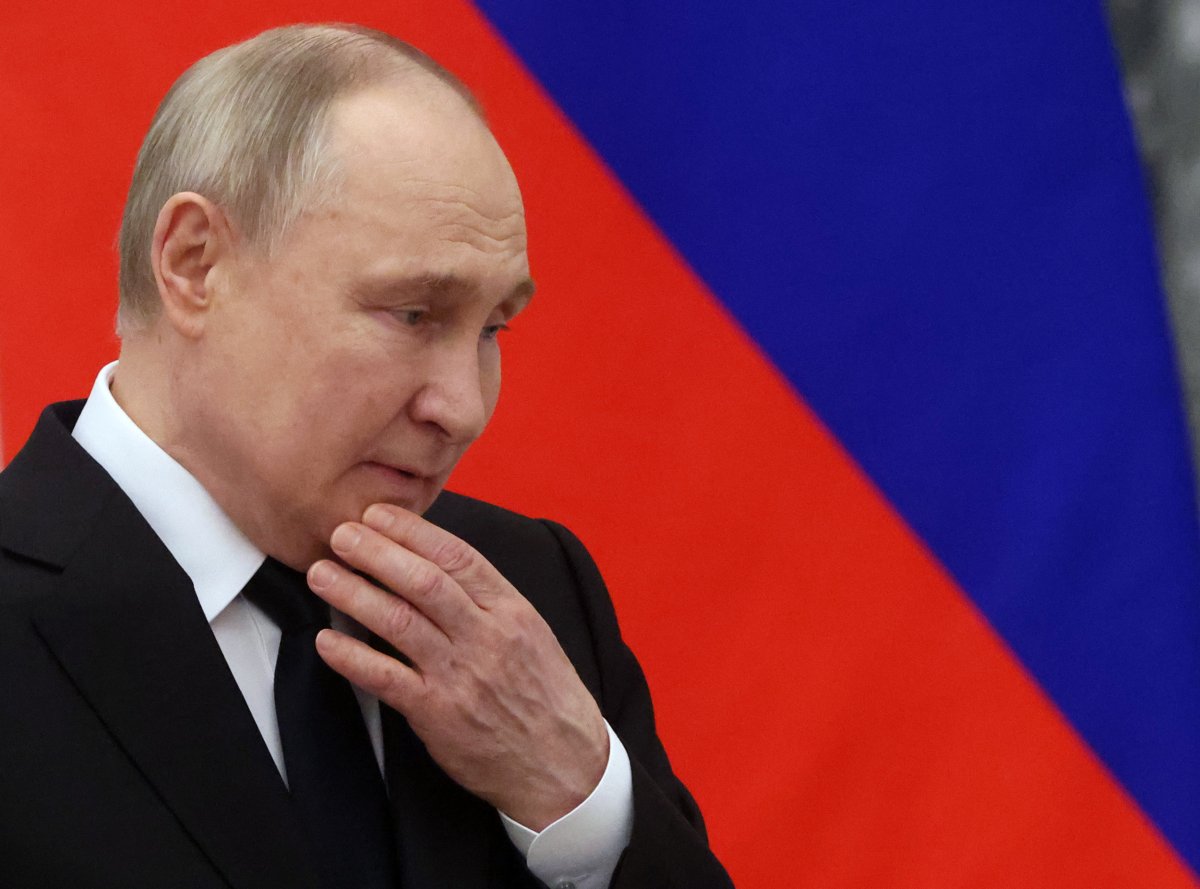The terrorist attack at a Moscow concert hall exposed Russian President Vladimir Putin's image as the "great protector" of his country and showed how he is "losing control," according to a British journalist and author who has written about the dictatorship of Nazi Germany.
Roger Boyes, who has written books about how Adolf Hitler rose to and maintained power, started an op-ed in The Times of London by asking if dictators keep their citizens safer than democracies do.
Co-author of Surviving Hitler: Corruption and Compromise in the Third Reich and Seduced by Hitler, Boyes was the newspaper's Eastern Europe correspondent based in Warsaw, Poland, where he covered the Solidarity revolution and the imposition of martial law.
His piece referred to the Cold War, suggesting that Putin's political survival was built on being "more protective of the motherland" than the last Soviet leader, Mikhail Gorbachev, as well as a "steadier hand" than his predecessor, Boris Yeltsin.

Despite the war he started in Ukraine with the February 24, 2022, invasion, "Russian towns have by and large been sheltered from the nastiness. He was the Great Protector." However, in Boyes' view, he was "no longer."
This is because the attack on Crocus City Hall on Friday "exposed at once the shakiness of his claim to be Russia's sword and shield, the unpreparedness of the security apparat for a new threat and the low credibility of the regime's war rhetoric."
"The sequencing of events charts how Putin is losing control of the narrative," said Boyes, who noted the death of Putin's most prominent opponent, Alexei Navalny, on February 16 and then his rejection of U.S. intelligence hinting at an imminent Islamic State attack on crowded public spaces.
"One thing is for sure—ordinary Russians who imagined ten days ago they were voting for a trusted leader now feel scared about the future," Boyes said.
Russia's Federal Security Service, the FSB, said it arrested 11 people, including four suspected gunmen identified as Tajik nationals, who appeared in a Moscow court on Sunday on terrorism charges, showing signs of beatings.
Russian officials have insisted that Ukraine and the West had a role, which Kyiv and the U.S. vehemently deny.
But Boyes said that Putin's propagandists had "overreached" in trying to link Kyiv to Islamic State and are now "talking vaguely about western puppet-masters."
"That's when you know a narrative has failed," said Boyes, who noted one scenario could be that Putin might use the attack to pivot away from the war in Ukraine and freeze the conflict while focusing on a more general war against terror.
The crisis could also mean that "Putin is already losing control, that he has allowed internal feuds within the swollen intelligence establishment to get out of hand."
'Bodes poorly for Russian security'
The death toll in the attack climbed to 140 on Wednesday after another victim died in a hospital, Russian officials said, according to the Associated Press.
Islamic State affiliate ISIS-K has claimed responsibility for the attack and social media channels linked to the militant group's videos of the gunmen committing the mass killing.
But FSB chief Alexander Bortnikov alleged Western spy agencies were involved and repeated Putin's claim that the gunmen were trying to escape to Ukraine when were arrested.
However, that was contradicted by authoritarian Belarusian President Alexander Lukashenko, who said the suspects were headed for Ukraine because they feared tight controls on the Belarus border.
Kevin Riehle, author of The Russian FSB: A Concise History of the Federal Security Service, told Newsweek that Moscow ignoring such significant counter-terrorism intelligence "bodes poorly for Russian security in the future.
"Putin's response is to show toughness, to show that the perpetrators will be punished," said Riehle, lecturer in intelligence and security studies at London's Brunel University. "It allows him to claim that he is on the side of the Russian people, even though the attack itself was the result of an FSB failure."
Riehle believes the FSB is likely to manufacture some "evidence" of Ukrainian and Western involvement in the attack.
"That will likely lead to further violent attacks on Ukrainian civilian infrastructure," he said. "It may also lead to provocative military actions against NATO countries, without full-scale escalation."
Newsweek has contacted the Kremlin for comment.
Uncommon Knowledge
Newsweek is committed to challenging conventional wisdom and finding connections in the search for common ground.
Newsweek is committed to challenging conventional wisdom and finding connections in the search for common ground.
fairness meter
To Rate This Article
About the writer
Brendan Cole is a Newsweek Senior News Reporter based in London, UK. His focus is Russia and Ukraine, in particular ... Read more
To read how Newsweek uses AI as a newsroom tool, Click here.








